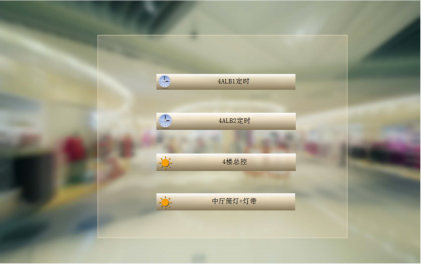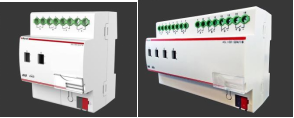
安科瑞 陳聰
Acrel smart lighting control system applicated in Malaysia Petroliam Nasional Bhd project
摘要:隨著社會經濟的發展及網絡技術、通信技術的提高,人們對照明設計提出了新的要求,它不僅要控制照明光源的發光時間、 亮度,而且與其它系統來配合不同的應用場合做出相應的燈光場景。本文介紹了馬亞西亞石油公司智能照明項目的應用。
Abstract: With the development of economy and the improvement of network and communication technology, we propose new requirements for lighting design. It not only need to control the luminous time and lighting brightness , but also makes lighting scene with other systems in different applications. This article introduces the application of smart lighting control system of Malaysia Petroliam Nasional Bhd project.
關鍵字:智能照明系統;節能減排;照明控制;
Keywords: smart lighting system, energy saving, lighting control
0.項目概述
Project overview
馬亞西亞國家石油公司位于首都吉隆坡,本次項目主要做該公司新建辦公室智能照明控制,并用后來軟件實現集中控制。
Malaysia Petroliam Nasional Bhd is located in the capital Kuala Lumpur. This project mainly deals with the smart lighting control of the office building, and realizes central control by a background system.
1.系統介紹
System introduction
Based on KNX bus technology, Acrel-BUS smart lighting control system originates from Europe and develops from the three bus control technologies for residences and buildings including EIB, Batibus and EHS, of which EIB (European Installation Bus) is the agent technology. It uses the dual-core shielded twisted pair as the bus cable to connect all control modules for system control.
The system can integrate various independent control functions and combine many advantages including comfort, flexibility, safety, energy conservation, economy, easy maintenance into one system. It is mainly used for the control areas of large pubic construction projects including residences and buildings.
2.國家石油公司照明系統圖
Lighting system diagram of Petroliam Nasional Bhd office building

3.系統功能
System function
Manual control: smart panels and touchscreens installed in all areas can realize real time control of light on/off and brightness according to actual needs.
Auto control: sensors of different functions (e.g. illuminance transducers and human motion sensors) can realize automatic control of light based on external environment.
Scenario control: different scenarios can be preset for switching between them.
Time control: the system will automatically complete the light control according to the preset operation time to ensure minimum energy consumption in idle period.
Central control: for all controls, real time monitoring and effective control of the entire lighting area can be realized. It facilitates the control modes and saves labor and power.
Status feedback: the system can give feedback on the on/off function of lighting fixtures on the site.
System linkage: the lighting system can form system linkage with the property management system, the building automation system and the security &fire system.
4.系統界面
System screen
安科瑞智能照明監控系統針對國家石油公司公共照明區域進行智能控制。
智能照明公共照明控制界面見下圖,主要實現公共照明控制,可統一控制,也可單獨控制,控制狀態可在界面上直接顯示出來,同時可以設置各照明回路自動亮滅時間。
Acrel smart lighting system controls the public lighting area of Petroliam Nasional Bhd.
The lighting control system is shown in the figure below, mainly realizes public lighting control, which can be controlled centralize or independently. The control status can be directly displayed on the touch screen, and the automatically set the lighting circuits on-off time.


Smart lighting interface 2
定時智能照明控制主界面見下圖,特定區域根據時間段控制來自動控制公共區域的照明的通斷。
The main interface of smart lighting control system is shown in the figure below. Special areas can automatically control the lighting on and off of public areas according to time period control.

定時控制界面示意圖一
Timely control screen one

定時控制界面示意圖二
Timely control screen two
5.系統結構
System structure
依據國家石油公司照明情況分布情況,系統包括:站控管理層、現場設備層。系統網絡結構如圖所示:
According to the lighting distribution of Petroliam Nasional Bhd, the system includes: station control management layer and field equipment layer. The system network structure is shown as belows.

6.智能照明模塊描述
Description of smart lighting control module:

The above is the structural typology diagram of Acrel-bus smart lighting control system. The system architecture adopts layered structure, advantageous mainly in the following three aspects:
1、Enhancing system reliability. As each area and each line is distributed with KNX power, the electric isolation enables other parts to continue with operation when something goes wrong with one part of the system.
2、The data communication within one line or one area will not affect communication in other areas.
3、During system commissioning and maintenance, a clear system structure will provides high maintenance efficiency .
Common Product Models
6.1Power module


Function description:
A standard power supply for the KNX/EIB system, coupling bus signals and monitoring currents in KNX/EIB systems. Besides, the power supply of this series provides an auxiliary DC voltage of 30V for the power supply of other peripheral equipment (e.g. touchscreens, IP gateways). The module can supply power to a maximum of 64 pieces of equipment with bus reset, overcurrent indication and short circuit protection.
6.2 Switch drive


Function description:
The switch drive is a drive used for switch control of equipment. It supports KNX bus protocol and has functions including logic, delay, preset, scenario and threshold switching.
6.3 0-10V dimming drive


Function description:
The 0-10V dimming module supports KNX bus protocol and is used to control dimming circuits. It has soft on/off functions. Each circuit can be called by 8 scenarios simultaneously to check circuit status. It is especially suitable for the dimming of incandescent lamps, LED lights and low voltage halogen lamps. It also has functions including on/off, scenario and status feedback.
6.4 SCR dimming module


The SCR dimming module supports KNX bus protocol. As a dimming module, it cannot only control the connection and disconnection of the load through direct control of the connection and disconnection of input power, but also adjust input voltage by phase control to realize LED dimming.
6.5Human motion and illuminance sensor


Function description:
The smart lighting sensor supports KNX bus protocol. It can sense external signals and physical conditions (such as light, infrared and microwave) and transmit the sensed information to other KNX modules (such as dimmers, switch drives) to realize its functions. It is mainly used for places in need of automatic control in the smart lighting control system including public passages, lobbies and garages.
6.6 Smart panel


The smart panel supports KNX bus protocol. It is used to receive the signals triggered by button press. It can realize on/off, dimming, scenario, curtain control, temperature adjustment, alarm function through the combination of short or long press and different parameter configuration.
Function description:
6.7 Dry contact input module


Function description:
The dry contact signal input module supports KNX bus protocol. It is used to receive external dry contact signal input. It can realize functions through different parameter configuration including on/off, dimming, scenario, curtain control, data transmission, count, temperature adjustment and alarm.
7.智能照明系統的意義
The meaning of smart lighting control system
??現代化的發展,越來越多的建筑已經使用上智能照明系統,智能照明系統不僅僅在功能上給予人們不一樣的體驗,更加適合人們的工作使用。現代的建筑大都使用了智能照明系統,比起老式的照明方式,現代化的智能照明系統更加的受歡迎;智能照明系統在建筑中的節能方式,通過加強管理節約成本、合理利于自然光源、照明系統資源共享等方式來實現資源的節約。智能照明系統的優點和實用性有很多,同時智能照明系統也在不斷地發展完善,未來建筑將會全方面的使用智能照明系統來控制照明。
Nowadays with the development of modernization, more and more buildings have already used smart lighting system. Most modern office buildings use smart lighting system, which is more popular than the old-fashioned lighting system. The energy saving method of smart lighting system in the building can realize resource saving by strengthening management and cost saving, effectively benefiting natural light source and lighting system resource sharing. There are many advantages and practicability of smart lighting system, and smart lighting system is also developing and improving constantly. In the future, most building will use smart lighting system for lighting control.